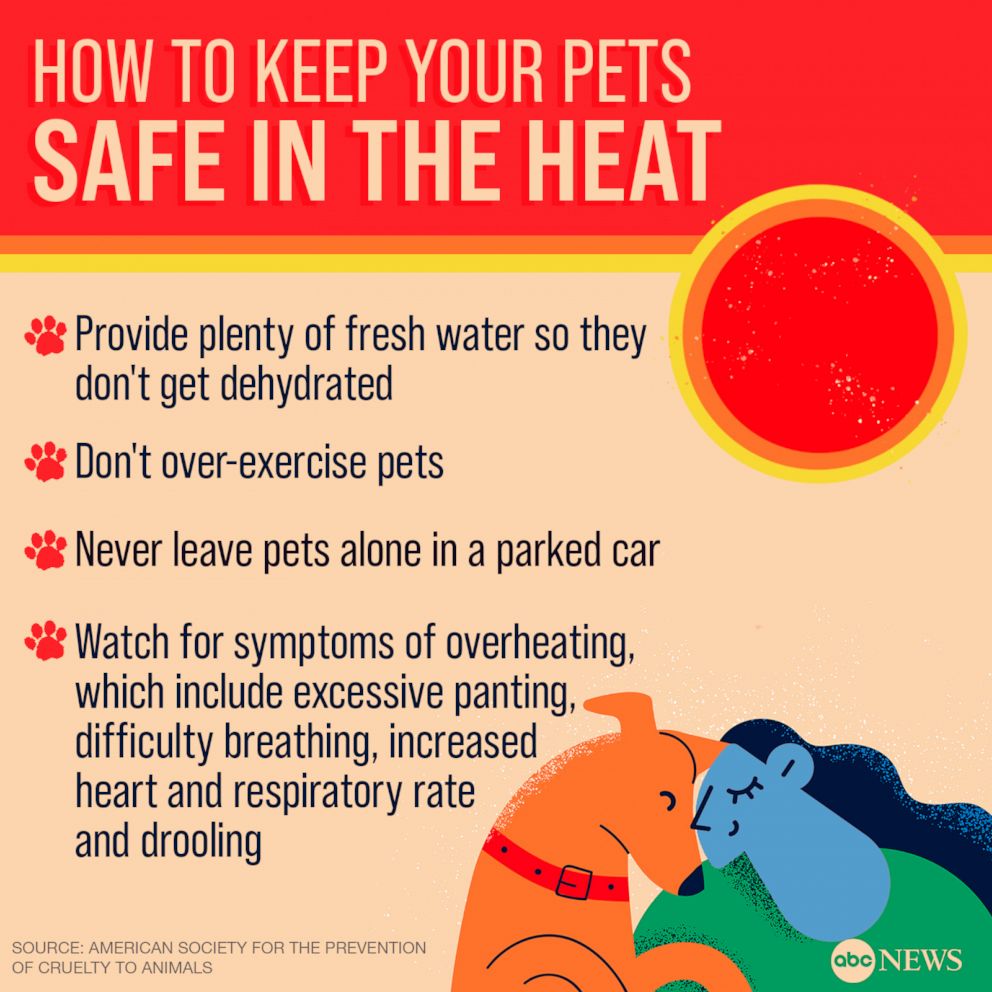Heat stroke vs. heat exhaustion: Extreme heat safety tips
There are hundreds of deaths each year in the U.S. due to excessive heat.
Dangerously high temperatures are hitting the Northeast, Southeast and Southwest.
On Thursday, temperatures could climb to a scorching 106 degrees in Dallas; 97 degrees in Raleigh, North Carolina; 96 in Washington, D.C.; and 94 in New York City.
This weekend, Phoenix is poised to break its record for most 110-degree days in one year.
Doctors recommend taking excessive heat warnings seriously. There are hundreds of deaths each year in the U.S. due to excessive heat, according to CDC WONDER, an online database, and scientists caution that the actual number of heat-related deaths is likely higher.
Here are tips to stay safe from the heat from the Centers for Disease Control and Prevention:
Wear sunscreen
Take precautions to prevent sunburn, which can make you dehydrated and affect your ability to cool down.
Use sunscreen that's SPF 15 or higher 30 minutes before going outside. Sunscreens that say "broad spectrum" or "UVA/UVB protection" are best.
Stay hydrated
Drink extra fluids, and don't wait until you're thirsty.
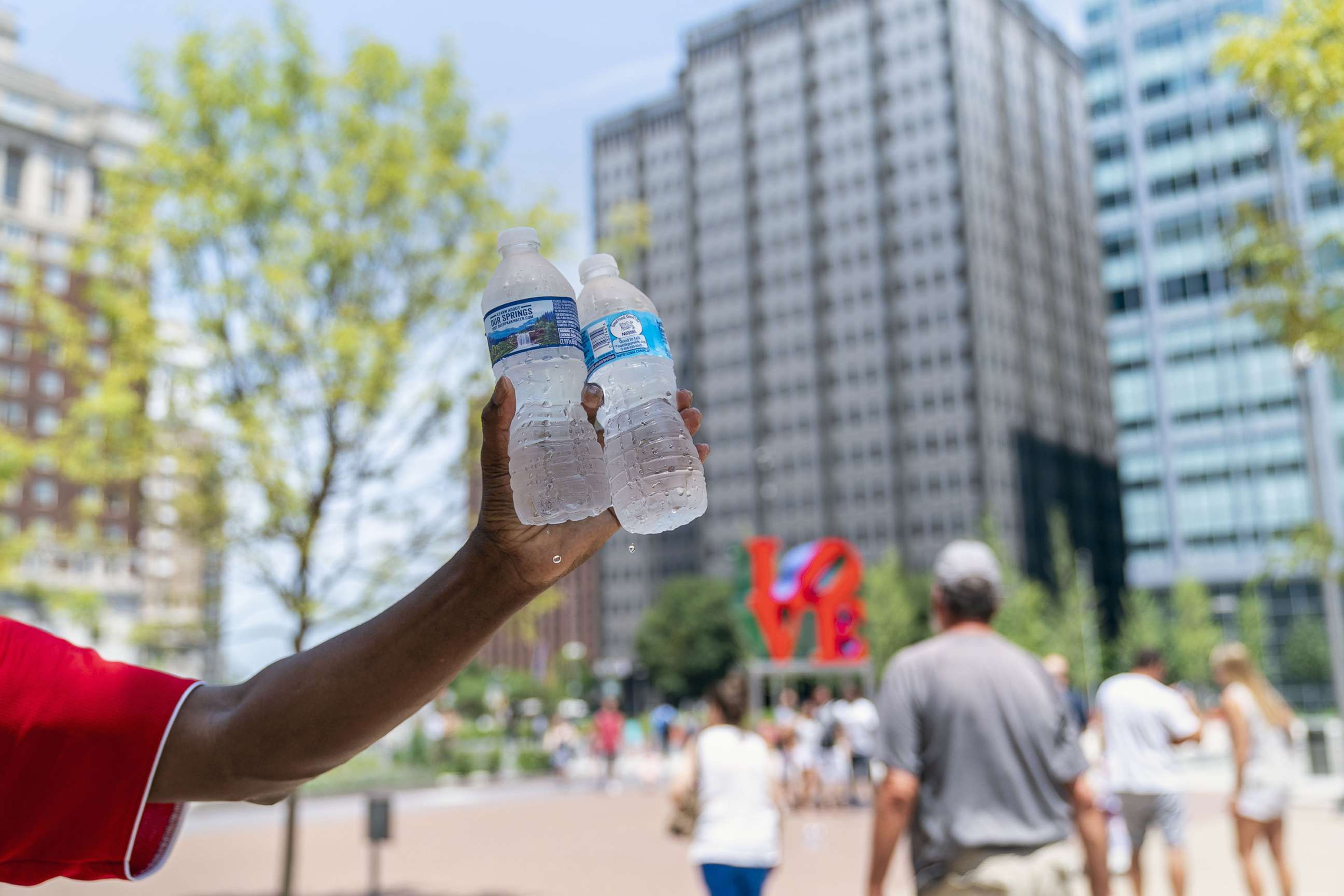
Avoid very sugary drinks and alcohol, which can cause your body to lose more fluid, and be wary of extra-cold drinks that may cause stomach cramps.
Avoiding hot and heavy meals also can reduce your body's overall temperature.
Limit time outside
Cut down on exercise during heat waves and rest often and in shady areas.
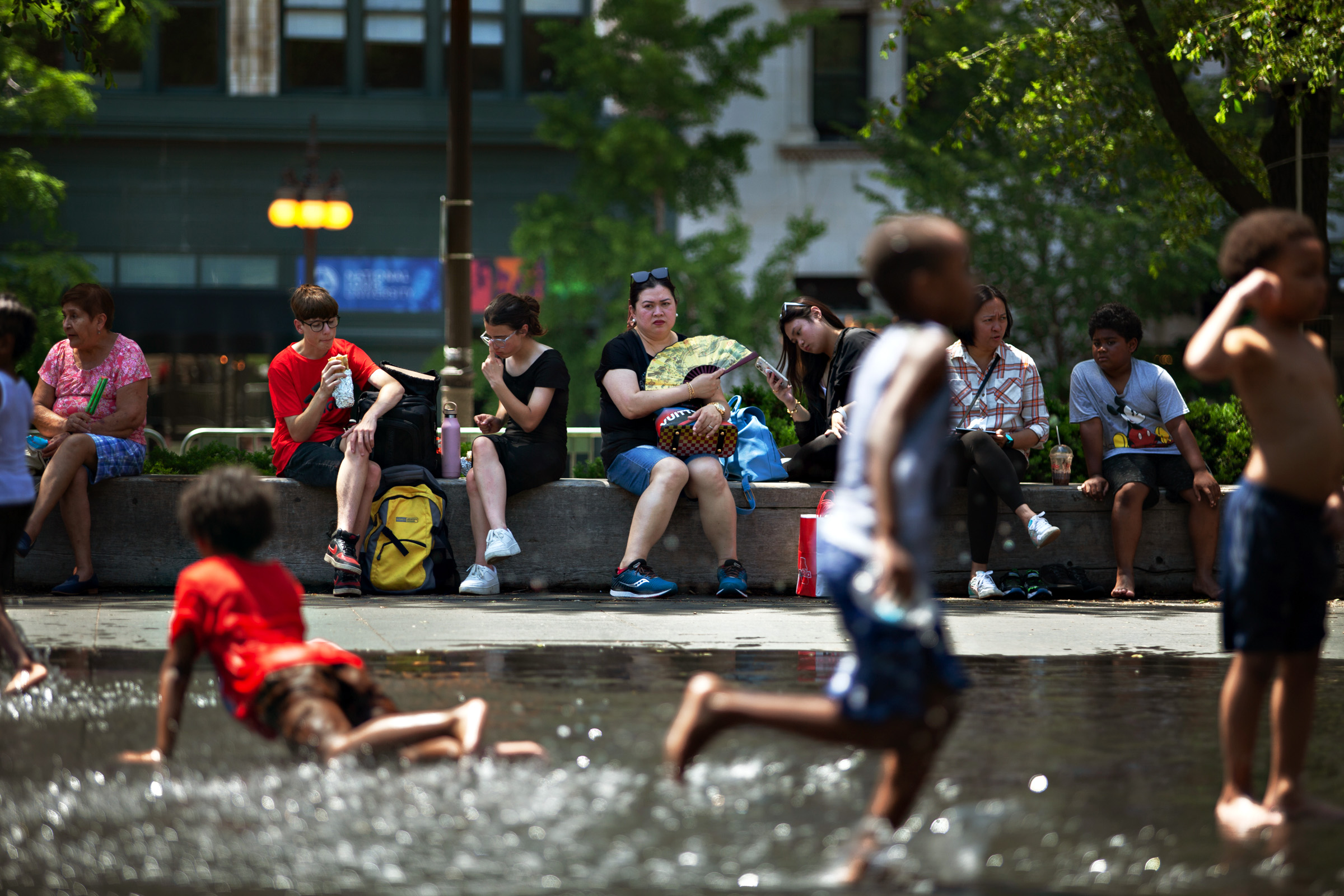
Try to limit your time outside to when it is cooler, like in the early morning and evening.
Check the car
Never leave children in a parked car -- even if windows are cracked open.
Monitor high-risk loved ones
Anyone can suffer from heat-related illness at any time, but these people are at greater risk:
-- Babies and young children
-- Overweight people
-- Those 65 years old or older
-- People who overexert during work or exercise
-- Those who suffer from heart disease or high blood pressure and those who take certain medications, including for depression, insomnia or poor circulation
Watch for signs of illness
Symptoms of heat stroke include:
-- Body temperature of 103 degrees or higher
-- Hot, red, dry or damp skin
-- Fast, strong pulse
-- Headache
-- Dizziness
-- Nausea
-- Confusion
-- Passing out
-- No longer sweating
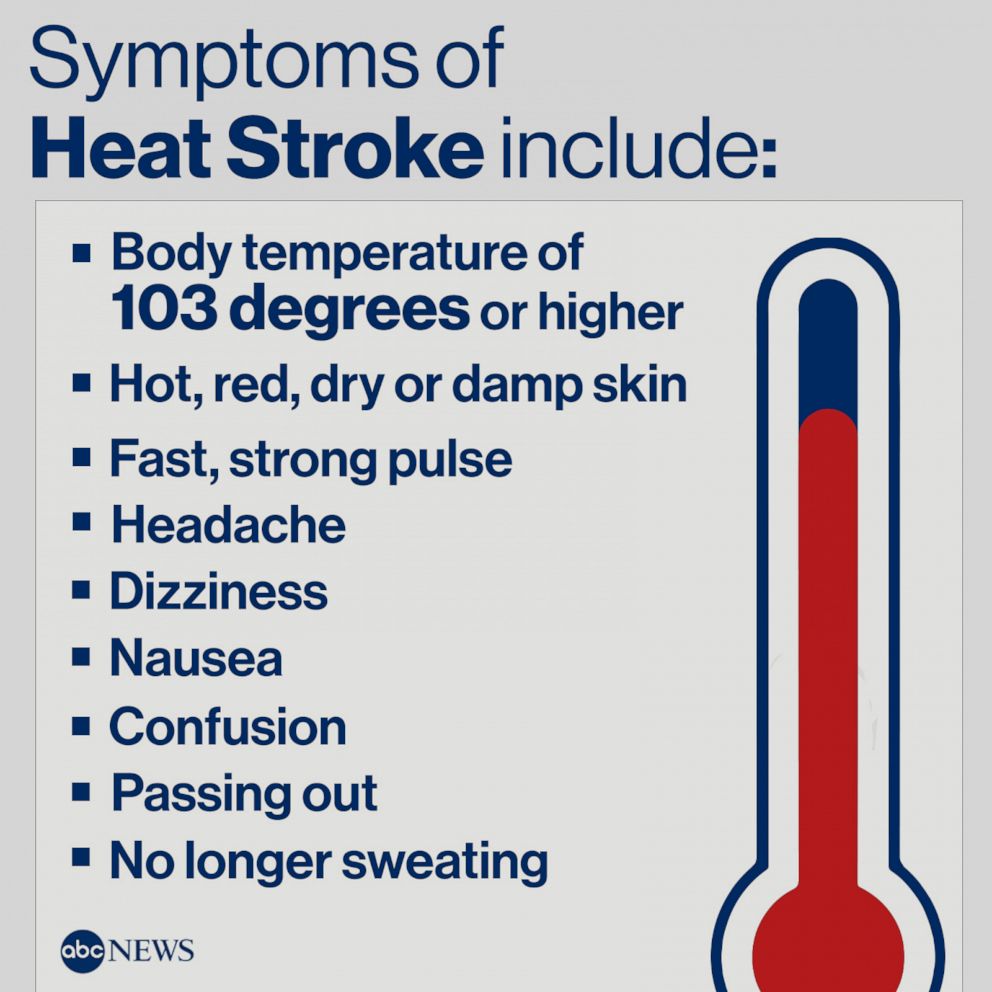
Symptoms of heat exhaustion include:
-- Heavy sweating
-- Cold, pale, clammy skin
-- Fast, weak pulse
-- Nausea or vomiting
-- Muscle cramps
-- Feeling tired or weak
-- Headache
-- Passing out
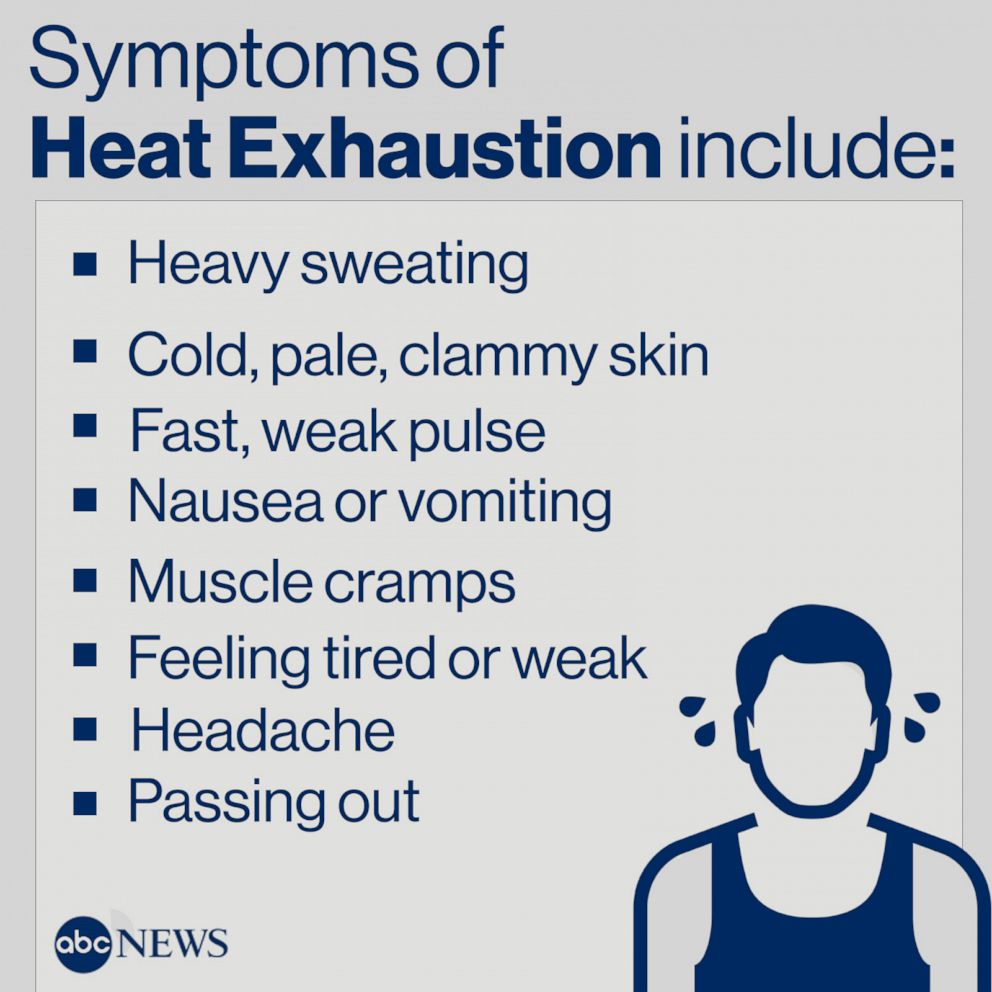
If someone shows symptoms of heat stroke or heat exhaustion, call 911, move them somewhere cooler and use towels to cool down their body.
Don't forget about your furry friends!
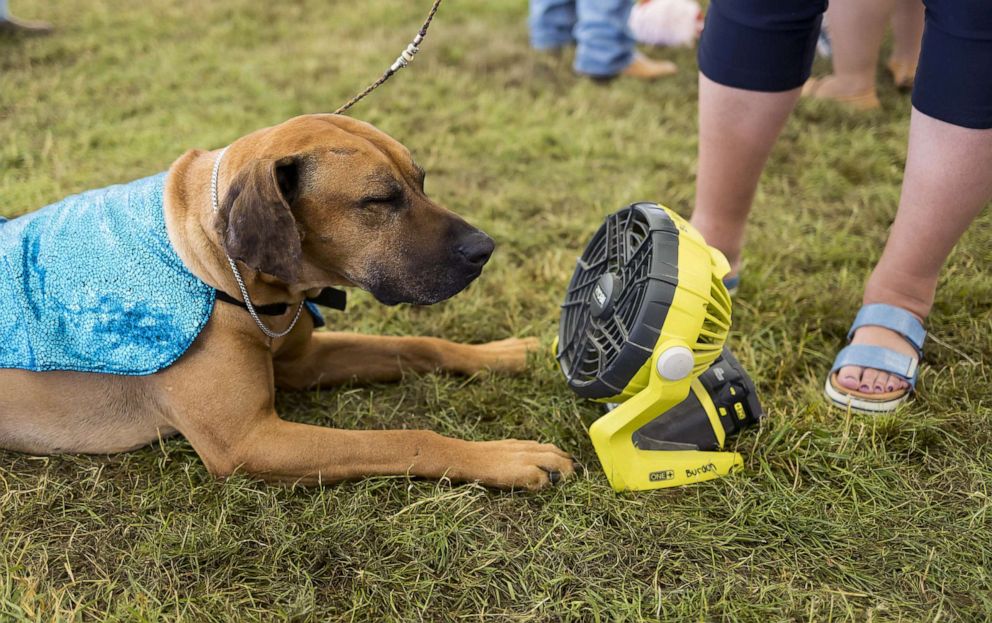
Here are some tips from the American Society for the Prevention of Cruelty to Animals for how to keep your pets safe in the heat: provide plenty of fresh water so they don't get dehydrated; don't over-exercise pets; never leave pets alone in a parked car; and watch for symptoms of overheating, which include excessive panting, difficulty breathing, increased heart and respiratory rate and drooling.
Animals with flat faces, like pugs, can't pant as well and are more at risk of heat stroke. These pets, as well as older and overweight pets, should be kept inside as much as possible.
